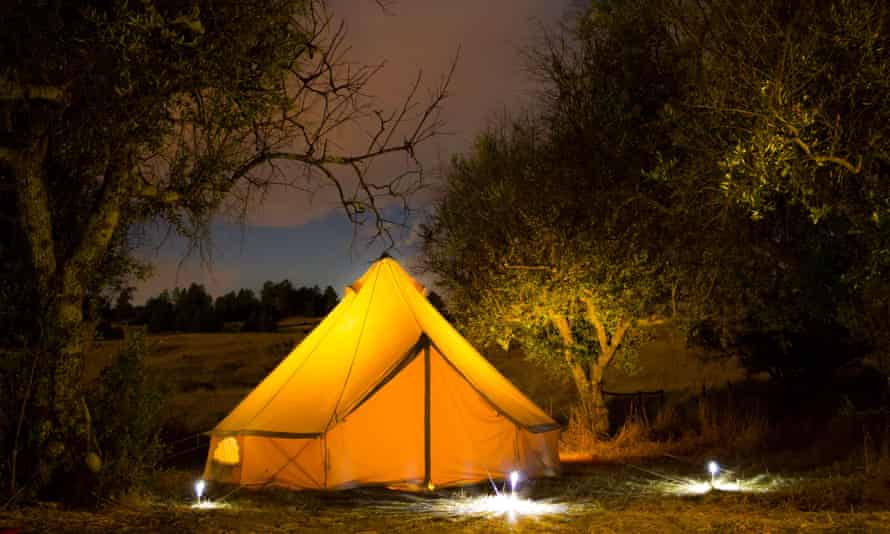Adventurous play boosts kids’s psychological well being, research finds | Kids
[ad_1]
Kids who spend extra time engaged in adventurous play involving a component of danger have fewer signs of tension and despair, in line with analysis that discovered the impact was extra pronounced amongst kids from decrease revenue households.
The research got down to check theories that adventurous play – climbing timber, driving bikes, leaping from excessive surfaces, or taking part in out of grownup sight – provides studying alternatives that assist construct resilience in kids and shield psychological well being.
Researchers surveyed two samples of oldsters of kids aged 5 to 11 – 427 mother and father in Northern Eire and a nationally consultant group of 1,919 mother and father in England, Wales and Scotland – and requested them about their baby’s play, their psychological well being earlier than the pandemic and their temper in the course of the first Covid-19 lockdown.
They discovered that kids who spent extra time taking part in adventurously outdoors had fewer “internalising issues”, that are characterised as nervousness and despair, they usually have been additionally extra optimistic in the course of the first lockdown.
The results have been comparatively small however constant after factoring in a spread of demographic variables, together with a baby’s intercourse and age, in addition to mother and father’ employment standing and psychological well being. The bigger pattern additionally discovered the affiliation was stronger for youngsters from decrease revenue households than their friends from wealthier backgrounds.
Because of this, the research’s authors are calling on planning authorities to make sure that each baby, notably these from deprived households who can’t pay for extra, organised journey experiences, has free entry to a secure house for adventurous outside play near their dwelling.
The research, Baby’s Play: Inspecting the Affiliation Between Time Spent Enjoying and Baby Psychological Well being, printed within the journal Baby Psychiatry & Human Growth, comes at a time when baby psychologists are fearful that kids have much less alternative for adventurous play out of sight of adults, that Covid has restricted play, and playgrounds have develop into sanitised amid fears of litigation.
Helen Dodd, professor of kid psychology on the College of Exeter, who led the research, stated: “We’re extra involved than ever about kids’s psychological well being, and our findings spotlight that we would have the ability to assist shield kids’s psychological well being by making certain they’ve plentiful alternatives for adventurous play.
“That is actually optimistic as a result of play is free, instinctive and rewarding for youngsters, accessible to everybody, and doesn’t require particular abilities. We now urgently must put money into and shield pure areas, well-designed parks and journey playgrounds, to help the psychological well being of our youngsters.”
In July, one among Europe’s greatest indoor kids’s play centres is ready to open in Wetherby in Yorkshire, promising a brand new and difficult expertise for youngsters. The £3.5m Playhive at Stockeld Park incorporates a sequence of themed and interconnected journey zones in a doughnut-shaped constructing with a 10-metre (33ft) tower at its centre.
Its creator, Peter Grant, stated: “We didn’t need the same old delicate play scene, however one that actually conjures up imaginations. The concept is kids of all ages can do most of it, however a few of it is tougher for older kids.”
Belinda Kirk, explorer, mom and creator of the Journey Revolution: The life altering energy of selecting problem, welcomed the College of Exeter findings on adventurous play. “There’s this extremely regular intuition to wish to shield your kids, which I’ve in bountiful quantities.
“However we reside in a world that’s so obsessive about bodily security that we’ve forgotten to stability it with psychological well being. We’ve prioritised bodily security or bodily well being over psychological well being, so we’re not letting children fall down and be taught to choose themselves up once more, and due to this fact construct up coping mechanisms and resilience.”
Earlier analysis discovered that primary-age kids are usually not allowed to play outdoors on their very own till they’re two years older than their mother and father’ technology. Whereas their mother and father have been allowed to play outdoors unsupervised by the age of 9 on common, at this time’s kids are 11 by the point they attain the identical milestone.
Household adventures without spending a dime

1. Go for a stroll at the hours of darkness. Take a torch to make it extra enjoyable. “Doing it at night time makes it all of the extra thrilling, as a result of even environments you recognize, like a footpath close to your home, really feel completely different. It smells completely different, the wildlife’s completely different, it’s a correct journey,” says Kirk.
2. Go for an evening cycle.
3. Discover woods alone or with a good friend.
4. Camp out in a single day. “Sleeping out beneath the celebs is a vastly thrilling factor,” says Kirk. “Even simply in your again backyard.”
5. Go swimming or paddling in a river or lake.
6. Go geocaching. It’s a treasure hunt. Simply get the app, create an account, select your geocache from the tens of millions accessible – there are greater than 8,000 in London alone – and off you go.
7. Climb a mountain (or an area hill). “Summiting your first mountain is a superb factor to do,” says Kirk. “It might be Snowden, along with your mother and father, or a hill close to your home.”
8. Check out new abilities on a skateboard, curler skates or a motorbike.
9. Create an impediment course inside or outdoors.
10. Do a source-to-sea river stroll. Select from the 220-mile lengthy Severn Method from mid-Wales to the Bristol Channel for the very bold, the 71-mile Ribble Method, the 42-mile Sussex Ouse Valley Method and others.

